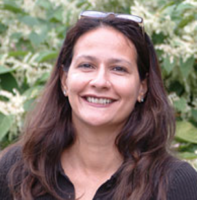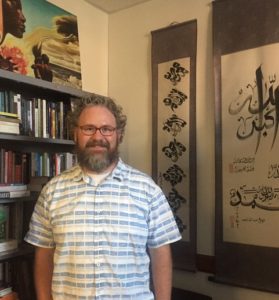Teaching Islam
Teaching Islam
Posts from 2016 to 2018
A blog space to engage conversations about teaching Islamic culture, religion, and history in higher education classrooms.
Topics include:
- teaching controversial issues
- engaging current events
- teaching Islam through film
- teaching through site visits
Contact:
Paul Myhre (myhrep@wabash.edu)
Associate Director, Wabash Center
Sign-up to receive email alerts when new blogs are posted
Follow us on Twitter and Facebook to receive announcements of new postings.
Sign up for our eNewsletter to receive timely announcements of Wabash Center programs.
Posts
Select an item by clicking its checkbox
No better time to teach how Islam is “raced” than now. Comments by the likes of Donald Trump provide excellent fodder for discussions about race, religion, and racism. It is also true that the kinds of questions asked by journalists and the stories they tell reveal the nature of anti-Muslim ...
In my classrooms, I have noticed that more and more students are coming to the study of religion with preconceived conceptions about different religious communities, most frequently, and consequentially, Islam. My sense is that many students in my World Religions courses have a sympathetic imagination about the religions of the “...
In all of the world’s religions, one finds the notion of a “holy fool”: an individual who transcends societal conventions with his/her ridiculous behavior and unpredictable manner of revealing moral truths. For my “Religious Heritage of Islam” and “Religions and Cultures of the Middle East” courses, one of ...
One of my previous blog posts mentioned the significance of storytelling and how I love sharing stories of my own travel to help students imagine the world of the classroom subject and, hopefully, to inspire students to travel and experience this world for themselves. As most teachers can testify, some ...
My most recent post for “Teaching Islam” deals with some of the stakes in teaching and studying religion at a Catholic college. My colleagues Shabana Mir and Sherali Tareen have also provocatively and sharply addressed related topics of “confessional” and “secular” curricular methodologies, so I’d like to continue the ...



